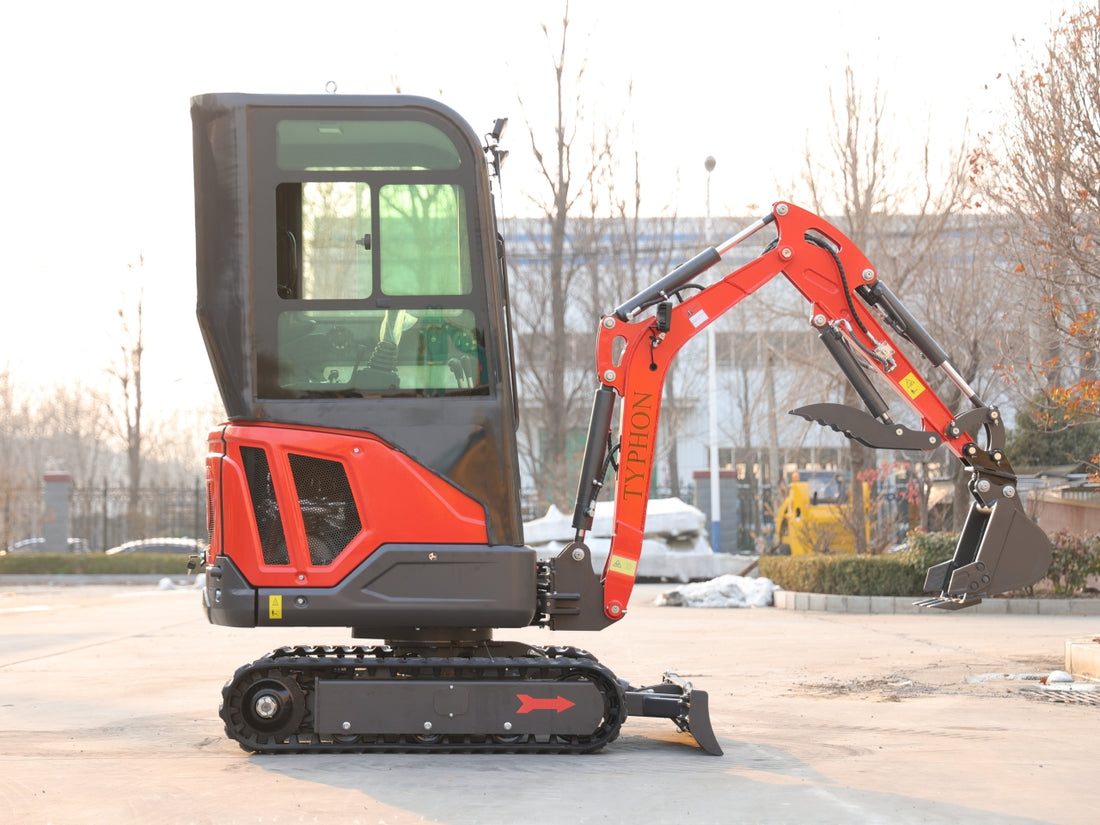Mini Excavators vs Larger Excavators
When it comes to choosing the right excavator for your construction projects, the decision often boils down to whether to opt for a mini excavator or a larger counterpart. This decision hinges on various factors, including the nature of the project, the terrain, budget constraints, and specific requirements. To make an informed choice, a comprehensive analysis of both types of excavators is crucial, considering aspects such as power, mobility, versatility, cost, and expert recommendations.
Power, Mobility, and Versatility:
Mini Excavators:
Mini excavators are characterized by their compact size and maneuverability, making them ideal for projects with limited space or indoor operations. Despite their smaller stature, modern mini excavators pack a considerable punch in terms of power, often equipped with efficient hydraulic systems and attachments to tackle a range of tasks. They excel in tasks such as trenching, landscaping, and utility work, where precision and agility are paramount. However, their digging depth and reach are typically limited compared to larger excavators, restricting their suitability for more extensive excavation projects.
Larger Excavators:
On the other end of the spectrum, larger excavators offer unmatched power and reach, capable of handling heavy-duty excavation tasks with ease. Their size and strength make them indispensable for large-scale projects such as road construction, mining, and major infrastructure development. With greater digging depths and higher lifting capacities, larger excavators excel in tackling demanding terrains and handling oversized materials. However, their bulkiness may pose challenges in confined spaces or urban environments, where maneuverability is crucial.
Advantages and Limitations:
Mini Excavators Advantages:
Compact size allows access to tight spaces and indoor areas.
Lower fuel consumption and operational costs compared to larger excavators.
Versatility due to compatibility with various attachments for different tasks.
Limitations:
Limited digging depth and reach compared to larger excavators.
Lower lifting capacity may not be suitable for heavy-duty tasks.
Longer project durations for extensive excavation projects due to smaller bucket sizes.
Larger Excavators Advantages:
High digging depth and reach, suitable for large-scale excavation projects.
Superior lifting capacity for handling heavy materials and equipment.
Faster completion of tasks due to larger bucket sizes and higher digging speeds.
Limitations:
Reduced maneuverability in confined spaces or congested job sites.
Higher fuel consumption and operational costs compared to mini excavators.
Initial investment and transportation costs are significantly higher.
Cost-Benefit Analysis:
Mini Excavators:
Mini excavators offer cost advantages in terms of initial investment, operational costs, and maintenance. While their upfront price may be lower than larger excavators, they prove economical in the long run due to lower fuel consumption and maintenance requirements. However, their limited capabilities may result in longer project durations, potentially offsetting some cost benefits.
Larger Excavators:
Larger excavators entail higher initial investments and operational costs, including fuel, maintenance, and transportation expenses. Despite these higher upfront costs, their efficiency and productivity often justify the expenditure, particularly for large-scale projects with demanding excavation requirements. Additionally, their faster completion times may result in overall cost savings and higher returns on investment.
Expert Insights and Recommendations:
Choosing between mini excavators and larger counterparts requires careful consideration of project scale, terrain conditions, budget constraints, and specific requirements. For smaller, more intricate projects where space is limited, mini excavators offer unmatched versatility and maneuverability. However, for large-scale projects demanding high productivity and extensive excavation capabilities, larger excavators remain the preferred choice.
Experts recommend assessing the project's scope, terrain characteristics, and budgetary constraints to determine the most suitable excavator type. Additionally, consulting with industry professionals or equipment specialists can provide valuable insights and recommendations tailored to your project's needs. Ultimately, the right excavator choice hinges on striking a balance between performance, cost-effectiveness, and project requirements to ensure optimal results and efficiency.
In conclusion, the decision between mini excavators and larger counterparts hinges on various factors, including project scale, terrain conditions, and budget constraints. Both types of excavators offer distinct advantages and limitations, requiring careful evaluation to make an informed choice. By considering power, mobility, versatility, cost, and expert recommendations, contractors can select the excavator that best fits their needs, ensuring efficient project execution and satisfactory outcomes.

